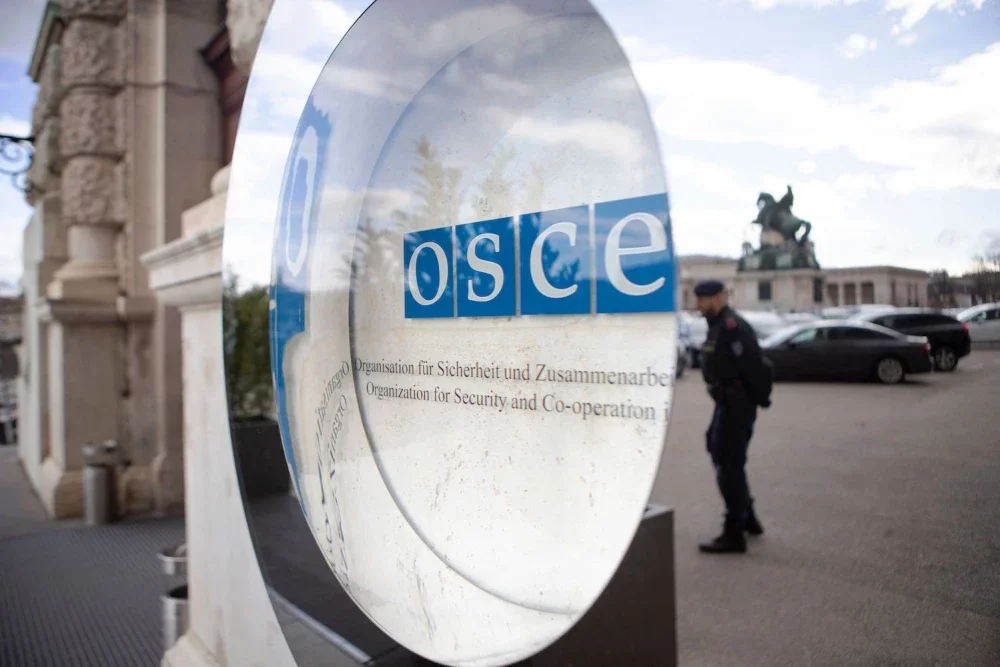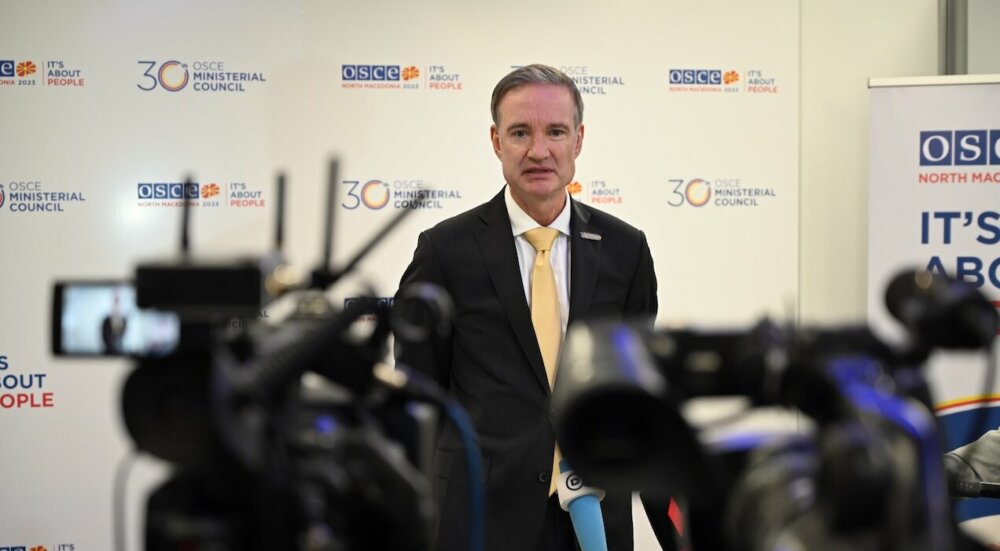Free elections or free caviar?
Ilham Aliyev has dominated the ex-Soviet Republic of Azerbaijan for an entire decade. He won the Presidency in 2003 (when he succeeded his father) and again in 2008. It therefore came as no surprise when Aliyev of the New Azerbaijan Party again managed to gain 85 percent of the votes in the Presidential election on 9 October of this year.
Azerbaijan is located strategically between Russia and Iran. It has rich oil and gas reserves in the Caspian Sea, which it exports to Europe mainly through the Baku-Tbilisi-Ceyhan pipeline. The oil exports have led to an economic boom in the country, raising living standards and reducing poverty. However, visitors to the glowing capital of Baku should not let themselves be deceived by its futuristic architecture, grand boulevard and impressive seafront. Aliyev tolerates no dissent. Critical journalists are imprisoned and prosecuted, opposition rallies are crushed, members of the opposition are arrested and imprisoned, and families are forcibly evicted from their homes in order for new construction to take place. According to Human Rights Watch, “the clampdown on freedom of expression, assembly, and association has accelerated in the months preceding the presidential elections.”[1] In addition, Azerbaijan demanded the downgrading of the OSCE Office in Baku in March of this year (see previous blog on this topic), in a move to reduce and control OSCE activities in the country.
Against this background and following an official invitation from the government of Azerbaijan, the OSCE Office for Democratic Institutions and Human Rights (ODIHR) deployed an Election Observation Mission to Azerbaijan on 29 August 2013, consisting of a head of mission, a core team, long term observers and short term observers. The statement of preliminary findings and conclusions, issued jointly by the ODIHR and the OSCE PA found clear language to describe the atmosphere prior to the elections as well as the events on election day: “The 9 October election was undermined by limitations on the freedoms of expression, assembly, and association that did not guarantee a level playing field for candidates. Continued allegations of candidate and voter intimidation and a restrictive media environment marred the campaign. Significant problems were observed throughout all stages of election day processes and underscored the serious nature of the shortcomings that need to be addressed in order for Azerbaijan to fully meet its OSCE commitments for genuine and democratic elections.” [2] The statement also noted that “opposition representatives expressed a lack of confidence in the election administration’s impartiality” and that “candidates were provided with insufficient access to the media, and a balanced and open exchange of views on political alternatives was lacking.”[3]
This joint ODIHR/OSCE PA statement clearly and unequivocally highlights the many shortcomings of the election process in Azerbaijan. It is therefore surprising that the OSCE Chairperson-in-Office, Ukrainian Foreign Minister Leonid Kozhara came out with a separate, overall positive statement on the elections in Azerbaijan on 10 October. In his statement, Foreign Minister Kozhara inter alia noted that “the international observers conclude that a number of aspects of the conduct of the Presidential Election in Azerbaijan showed progress towards meeting the OSCE and Council of Europe commitments and other international standards for democratic elections, while also outlining the areas which need to be further improved. In this regard, I congratulate the people and the leadership of Azerbaijan on this achievement that represents an important step forward in democratic development of their country.”[4]
This statement is inappropriate for the following reasons. First, public statements on behalf of the OSCE should be in line with OSCE consensus positions. The spirit of consensus is an integral part of the OSCE and is also reflected in the Permanent Council decision on “OSCE statements and public information” of 28 June 2002 (PC.DEC/485). Second, it is highly unusual for the Chairmanship to make a separate statement on the conduct of elections in an OSCE participating State, and even more so if it is contradicting the spirit of the ODIHR statement. The OSCE Office for Democratic Institutions and Human Rights (ODIHR) as well as the OSCE Parliamentary Assembly (OSCE PA) deploy election observation missions with election experts on the ground and it is their prerogative to make a balanced statement on the conduct of elections and the electoral process as a whole. Since their establishment following the 1990 Charter of Paris, the ODIHR and OSCE PA have established a broad base of experience and knowledge of various aspects of election observation over the years. In addition, the ODIHR has developed an election observation methodology that it follows very closely. It is on the basis of such experience that public statements are made by ODIHR and the OSCE PA on the electoral process in OSCE participating States.
This inappropriate statement by the Ukrainian OSCE Chairmanship plays into the hands of the critics who see the OSCE as losing its credibility. A Chairmanship that evidently applies double standards and comes out with a statement on elections contradicting the spirit of the joint ODIHR/PA statement is an embarrassment for the Organization. The Ukrainian Chair has evidently tried to appease Azerbaijan for reasons one can only speculate about, including Azerbaijan’s geopolitical location, rich oil and gas reserves and the role it plays in achieving a peaceful solution to protracted conflicts in the OSCE area. At the end of the year an assessment will be made by the media, the academic community and also the civil society of the Ukrainian OSCE Chairmanship. The question might be asked: What is it that matters more? Free and fair elections or free caviar?
To read the full text of the joint OSCE ODIHR/OSCE PA statement of preliminary findings and conclusions of the international election observation mission on the presidential elections in Azerbaijan, click here.
To read the full text of the statement by OSCE Chairperson-in-Office, Ukraine’s Foreign Minister Leonid Kozhara in connection with presidential elections in Azerbaijan, click here.
[1] See Azerbaijan: Crackdown on Civil Society, 2 September 2013, available at http://www.hrw.org/news/2013/09/02/azerbaijan-crackdown-civil-society
[2] Statement of preliminary findings and conclusions of the international election observation mission, Republic of Azerbaijan, Presidential elections, 9 October 2012, available at http://www.osce.org/odihr/elections/106901
[3] Ibid.
[4] See statement by OSCE Chairperson-in-Office, Ukraine’s Foreign Minister Leonid Kozhara in connection with Presidential elections in Azerbaijan, available at: http://www.osce.org/cio/106967



Comments
* Your email address will not be published